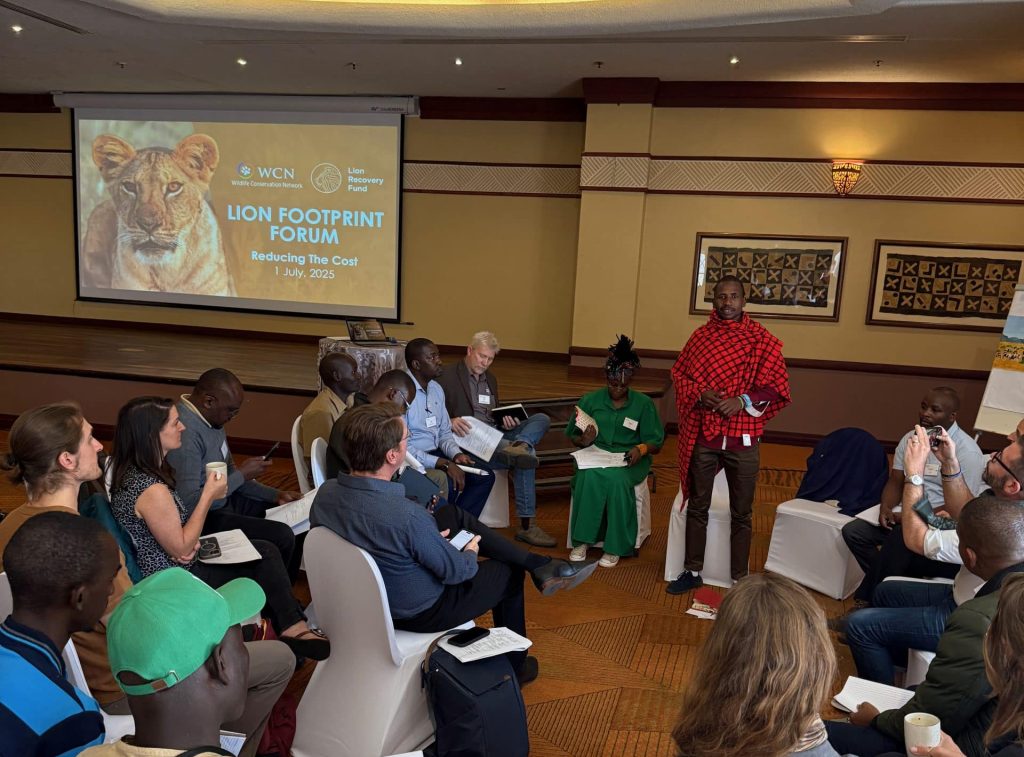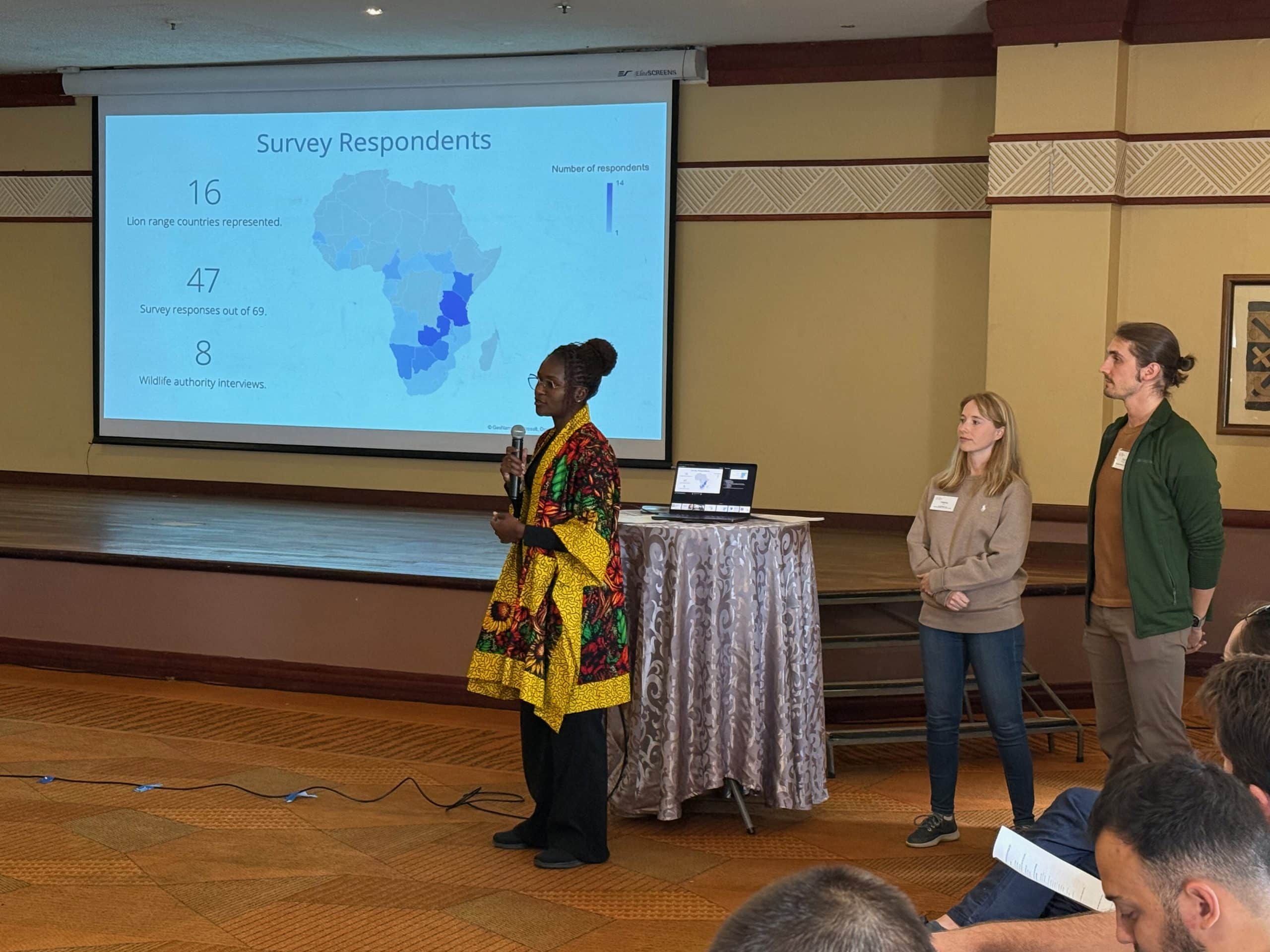When lion experts from across Africa and beyond gathered for the second Lion Footprint Forum, the energy was unmistakable. Organized by Wildlife Conservation Network’s Lion Recovery Fund (LRF), and supported by The Walt Disney Company as part of Disney’s Mufasa: The Lion King “Protect the Pride” campaign, the forum spotlighted continued efforts to help double lion populations by 2050 and brought together conservation actors under the banner of “People and Lions: Reducing the Cost and Unlocking the Value of Coexistence.” These experts tackled one of conservation’s most complex challenges: how people and lions can share landscapes safely, sustainably, and with mutual benefit.
What set this forum apart was its emphasis on genuine connection and collaboration across the entire conservation community. Participants came from a wide range of geographies, expertise, and organizational roles—from field-based lion monitors to community leaders—creating a rich environment for cross-pollination of ideas and collective problem-solving.
Among the attendees were representatives of WCN’s three core strategies. Peter Lindsey, Director of the LRF, and other leaders from WCN’s Wildlife Funds shared range-wide insights. Deep-rooted community knowledge and field-based expertise came from organizations like Ewaso Lions, a WCN Conservation Partner working in northern Kenya. Members of the Emerging Wildlife Conservation Leaders program—a partner program of WCN’s Rising Wildlife Leaders—developed a survey to shape the meeting’s proceedings. While this diverse group reflected WCN’s interconnected approach, the forum’s inclusive spirit extended far beyond any single organization.
The forum’s collaborative energy was shaped in large part by Maliasili, which facilitated all sessions and workshops. Participants took part in meaningful dialogue through a well-crafted blend of focused presentations, interactive breakout groups, and open space technology sessions. These conversations—described by many as “refreshing and insightful”—were enhanced by an adaptive agenda that evolved throughout the week, allowing shifting priorities and emerging ideas to shape the discussion in real time.
The collaborative approach proved particularly impactful during case study groups and case clinics, where participants shared real challenges and received input from the collective wisdom of the group. Another powerful moment was the “Mapping Coexistence” exercise, which gave participants a big-picture view of where conservation work is happening in their countries and across the wider landscape—and, crucially, where it isn’t. These insights will be invaluable for guiding future funding decisions and strategic planning.
Together, these sessions revealed just how layered and interconnected coexistence truly is. Many attendees shared that the forum helped ease the isolation often felt in conservation work, offering a rare and valuable chance to connect with peers who truly understand their challenges. The forum’s influence extends far beyond the week itself. Participants are planning to establish regional communication platforms to maintain connections and momentum, demonstrating their genuine relationships and shared commitment to continued collaboration. They’re actively working to strengthen networks across countries and regions, recognizing that lion conservation requires coordination that transcends borders.
The second Lion Footprint Forum proved something powerful: when conservationists come together with shared purpose, real change becomes possible. The week sparked new partnerships, strengthened existing networks, and equipped participants with fresh strategies for one of Africa’s greatest conservation challenges. In a world where lions face mounting pressures, this forum reminded everyone present that they don’t face these challenges alone. The future of Africa’s lions—and the people who share their world—depends on exactly this kind of collaboration.




